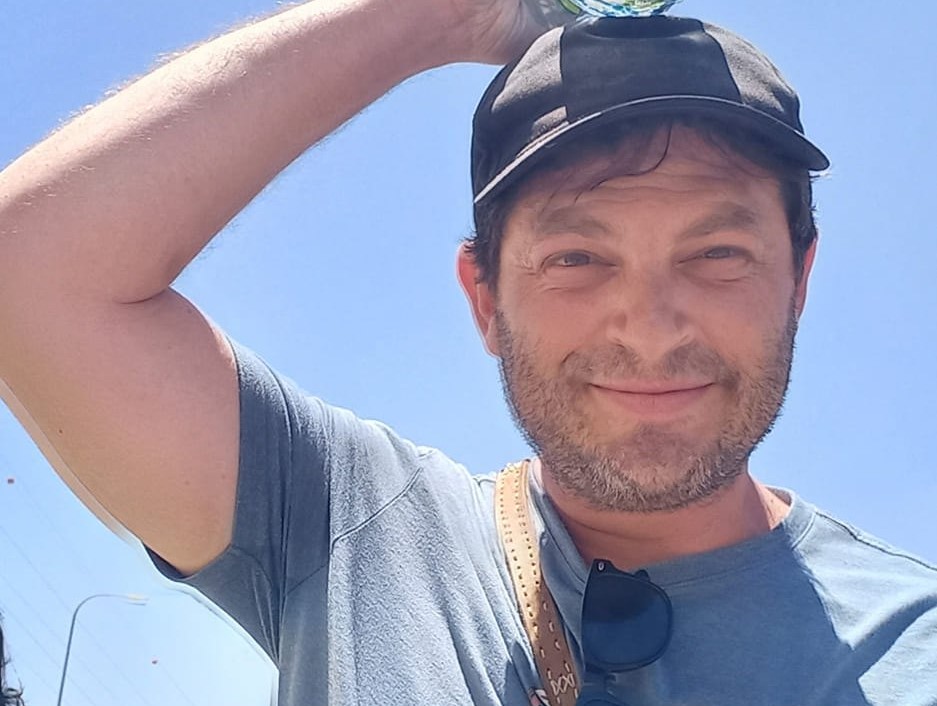
Featured Item

Tactical engagement – a wartime strategy for social media
Using your voice at a time of war and devastation can be a double-edged sword, say those who have paid the emotional price for engaging in discussions on social media.
“The great tension of social media is that though it can be a medium to share at least parts of our story, it’s also a polarising battlefield used for politicking and identity bashing,” says multimedia content editor, singer-songwriter, and drama and guitar teacher Moshe Singer. This is why Singer promised himself that he wouldn’t become involved in any online fighting following the 7 October massacre, especially when the South African Jewish Board of Deputies urged the community not to engage in social media battles.
“But I also couldn’t remain silent,” he says. “In South Africa, we have the privilege of celebrating and learning about the magnificent diversity around us while reclaiming our own Jewish identity. I believe we have a role and a responsibility to find access points to engage meaningfully with those around us – especially when it involves dispelling myths about Jewish peoplehood and Israel.”
Singer therefore devised a social media engagement strategy for sharing his experience with the intention of finding empathic engagement. “To demonstrate resilience, I took an image of myself putting on tefillin. To demonstrate support for our soldiers, I made a video singing ‘Acheinu’. To share strength for those needing it, I declared, ‘I’m a Jew, and I’m proud and will sing it out loud’.”
Though it wasn’t his intention, being vocal created conflict. “I had a fight with a friend privately,” says Singer. “This was after a few days when I was unfriended, and was unfriending others, and I felt a strong sense of loss.” He posted a status on Facebook expressing his sadness about losing so many friends, and was heartened when his words struck a chord with his Facebook community.
“I have had friends, non-Jewish and Jewish, reach out to me via various channels all wanting to express their solidarity in losing Facebook friends. It seems absurd even to say that, given the cynicism about the connections we have on our social media pages, but I believe this was where our experiences and expressions of compassion aligned – a recognition that we’re all experiencing this loss. There’s an acknowledgment that we’re still part of each other’s stories, and can still strengthen each other in these dark times.”
Yet for many, such light is hard to come by. When business owner Steph Cohen posted four Israeli flags in response to a video shared on TikTok depicting Ponte illuminated by the Israeli flag, she was horrified by the response she received from another user: “Wow. what a coincidence that the toilet paper I wipe my a** with looks like this.” [sic]
“I don’t think I have ever felt that combination of sadness, anger, and nausea at the same time,” Cohen says. “I took a screenshot, and shared it with my immediate family, and I reported it to TikTok. Judging from the response I received, it wasn’t considered hateful. I’ve also reported some other posts I feel have been very harmful, but nothing has come from it.”
Cohen is mindful of the potential backlash in engaging on social media around the Israel war and she gauges her emotional well-being before doing so. “I know that my posts or comments may be met with hate and my engagement honestly depends on my mental state on a particular day,” she says. “Sometimes I don’t want to know what would be said to me in response to my support, but as a Jew and someone who has most of her family in Israel, I feel it’s my duty to engage where I want to have my voice heard.
“Though it’s nothing new,” she says, “I didn’t think I would see such open and blatant hatred towards us. That’s been the biggest and scariest thing for me.”
Eliana Kahn* says she’s also experienced online hatred, with one particularly fiery social media exchange ending with the woman who disagreed with her calling for trolls to attack her. She emphasises the need to practice “good social media hygiene” by boosting privacy and security settings and being mindful of the content you consume. “Social media algorithms follow your behaviour,” she says, “so the more you watch and engage with hatred, the more hatred you’ll be fed.”
As a marketing professional, Kahn spends a lot of time on various social media platforms and says reporting or blocking hateful content is often far more beneficial than engaging with those who post it.
“Sometimes with a post that riles you up, the best response is not to respond. When sitting behind a keyboard, those on both sides often forget that there’s a human on the other end of it. I’ve had a relatively good success rate in reporting comments on various platforms and having them removed. Often, you can have a better impact by having the individual blocked and preventing them from spewing that hatred further.”
Counselling psychologist, Dr Hanan Bushkin, agrees, suggesting that we invest our time and energy into things that create value. “If you think that engaging with a particular individual or topic has any form of value aside from your ego – because you should put your ego aside – and that there’s a point to the argument, then engage,” he says. “But if there’s no value, and you’d rather invest that time and energy into your kids, spouse, family, or friends, do that instead.”
Often, we find ourselves locked in a cycle of anxiety especially when social media consumes our daily lives. “The human brain hates not being able to predict and control,” Bushkin says. “So, in a chaotic world, we try to get as much information as possible in the hope that we can make sense of our world and control it. But as we absorb social media and the news with the hope of gaining more control and understanding, the opposite happens because it inevitably creates even more fear and unpredictability.”
If you find that your social media engagements, the violent content you’re consuming, or fear of the consequences of exposing your views on social media is becoming detrimental to your mental health, find a healthier alternative, he says. “Control what you can, and let go of what you can’t. The more you try to focus on what you can’t control the more out of control you will feel. So, include as many things in your day as possible that build your sense of security and control.” From living purposefully, to working to reach work, financial, and fitness goals, or spending time with loved ones, the options are endless.
*name has been changed










